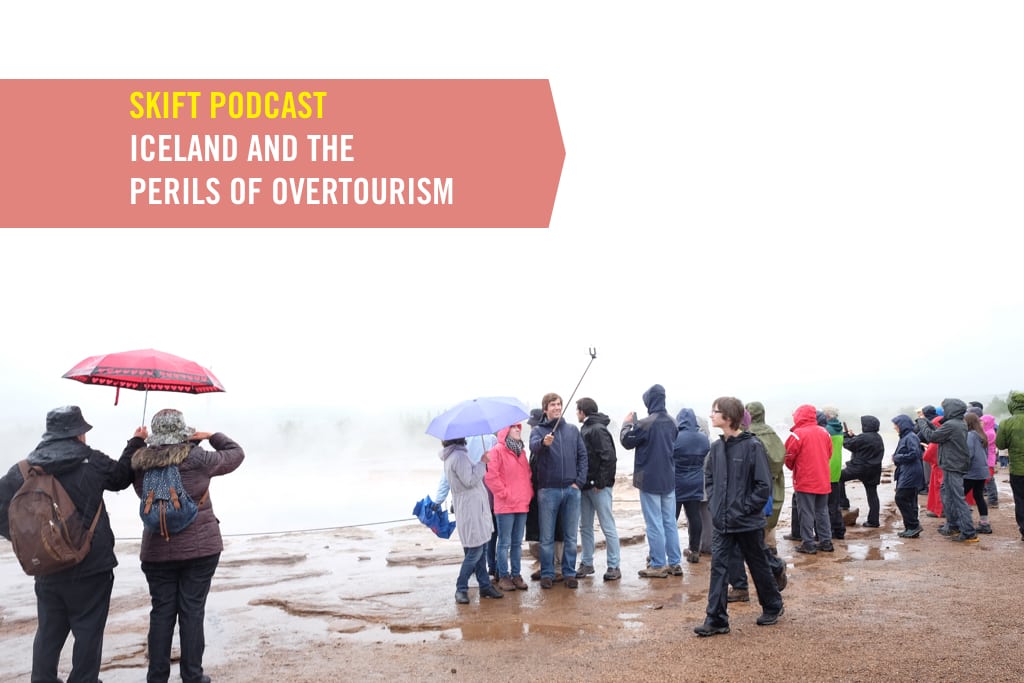Skift Take
When destinations look to tourism as an economic boost, they can sometimes get more than they bargained for. Iceland provides a perfect example of the woes that can come with large numbers of visitors.

Skift Podcast
Compelling discussions with travel industry leaders and creatives who are helping to shape the future of travel.
Iceland is in the midst of a tourist boom that has seen visitation increase about 264 percent between 2010 and 2015.
Last year, nearly 1.3 million foreign tourists visited the country, and tourism has become the tiny country’s top industry. But the influx of tourists is also bringing concerns about the environment, infrastructure, housing, and the impact on residents’ quality of life.
Skift sent reporter Andrew Sheivachman to Iceland to explore how this overtourism has affected the country over the last several years. He spent nearly a week interviewing more than a dozen tourism leaders and produced a 12,000-word deep dive on the issue.
Subscribe
Apple Podcasts | Spotify | Overcast | Pocket Casts | Google Podcasts | Amazon | RSS
On today’s episode of the Skift podcast, we’re talking about how Iceland became a hot tourist spot, the tiny country’s complicated relationship with its visitors, and how the problems of overtourism can be solved.
Along with Andrew, we’re hearing from some of his interviews with the people who are dealing with the tourism surge, including Grímur Sæmundsson, CEO of the Blue Lagoon spa and chairman of the Icelandic Travel Industry Association; Ólöf Ýrr Atladóttir, director general of the Icelandic Tourist Board; Sölvi Melax, founder of the car-sharing company Cario; Skúli Mogensen, the CEO of low-cost carrier Wow Air; and Fridrik Palsson, owner of the boutique Hotel Rangá in Hella.
Have a confidential tip for Skift? Get in touch
Tags: iceland, overtourism, skift podcast, the skift travel podcast
Photo credit: Tourists visit the Great Geysir area, a popular natural attraction in Iceland. The country saw the number of visitors increase more than 250 percent between 2010 and 2015. Andrew Sheivachman / Skift

